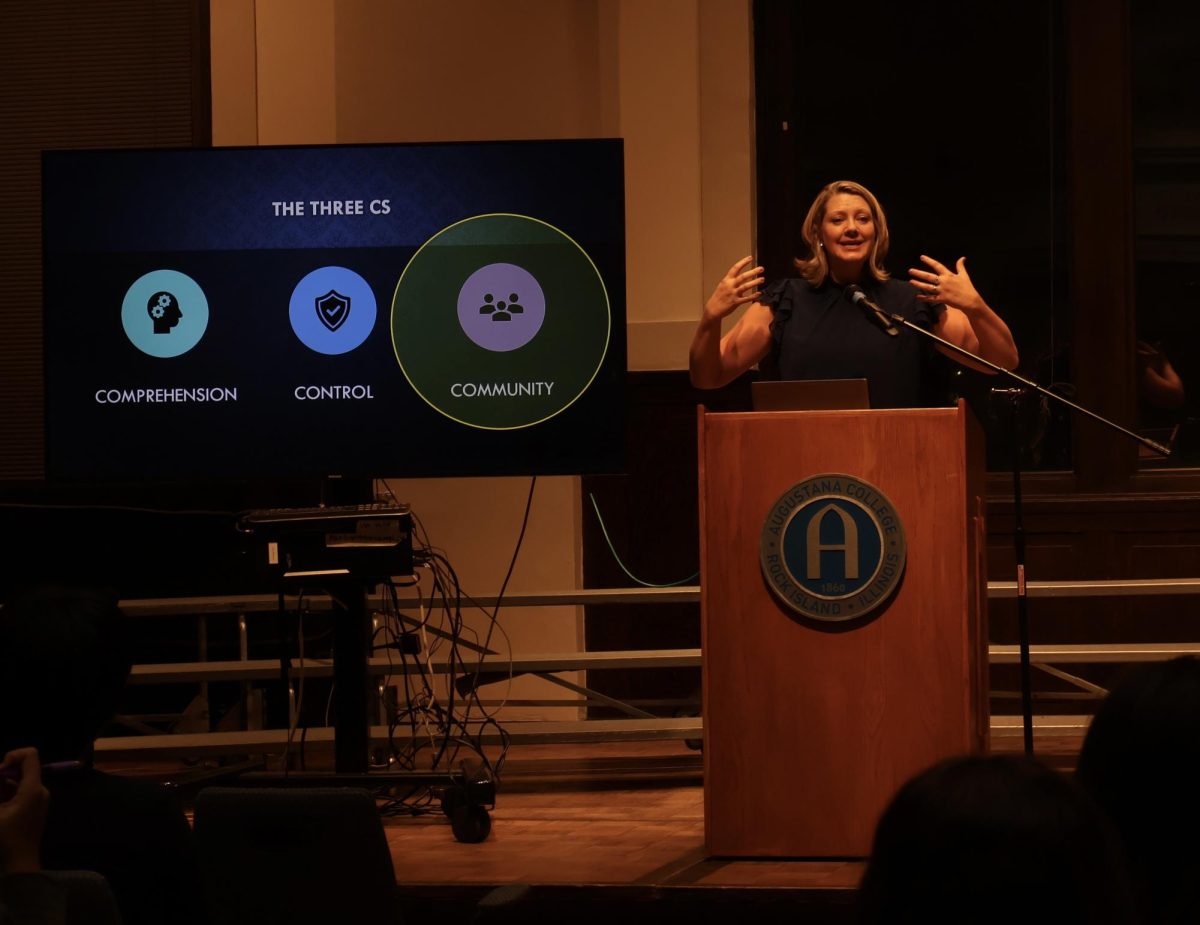On Oct. 7, Augustana welcomed Dr. Dannagal Young, professor of communication and political science at the University of Delaware, for a presentation in Wallenberg Hall at 7 p.m. about her book, “Wrong: How Media, Politics, and Identity Drive Our Appetite for Misinformation.”
Young, an award-winning scholar and teacher, TED speaker and improvisational comedian, discussed how our social identities lead us to believe untrue claims, ultimately creating an “us vs. them” dynamic. The talk was sponsored by Augustana’s Political Science Department.
“We all have different social identities and we put them on as different hats,” Young said.
Within these identities, Young said we often focus on the need for the three C’s: “comprehension, control and community.” She said the community aspect is “fundamental” because it allows us to feel connected to a social group or a team.
“We don’t just want to feel like we’re comprehending the world. We want to comprehend the world in a way that’s really good for our team. I want to understand the world the way my team does,” Young said. “I don’t just want power and agency, I want my team to have power and agency.”
Young said when we are within social communities, we sometimes begin to feel attracted to false claims and ideas, especially if we are “under threat.” She said our social identities play a big part in how we align politically, as well as how we react when these identities are under attack.
“There are many individuals who sort themselves into different parties based on fundamental, foundational identity categories,” Young said. “This is important because that social identity is going to be so cohesive, it’s going to fit together really tightly and it’s worth becoming more prominent in my mind.”
When someone attacks a social identity, Young said it brings a feeling of being “threatened” or “evoking an emotional response,” such as posting or responding on social media. Identity threats spur negative reactions, which divides groups, creating an “us vs. them” mindset.
Chair of the Political Science Department, Mariano Magalhaes, said social identities and falsehoods also play a part in the upcoming election.
“We have political elites, our political leaders who feed into this,” Magalhaes said. “They take advantage of our social media ecology to continue to reinforce these divisions and the animosity, the perceived threat coming from the other side, the othering.”
Magalhaes agreed that our social identities help form our own biases.
“I think we need to be cognizant of our biases, knowing or at least questioning things that come to us and not having a knee-jerk reaction,” said Magalhaes. “We might feel that something is false or wrong simply because it’s our bias.”
Magalhaes said he hopes that students will become more thoughtful consumers of news and understand how social media and bias puts us into groups.
“I think knowing your identities and thinking thoughtfully about who we are should help us, or can help us identify where our biases are,” he said.
Junior Genevieve Ryan attended the presentation and said the talk was “very pertinent in light of the presidential election.”
“Identity threats bring out your social identity a lot. It’s something that I have definitely experienced here at Augustana in my classes when you’re hearing about different views with people you typically associate yourself with,” Ryan said.










































































































